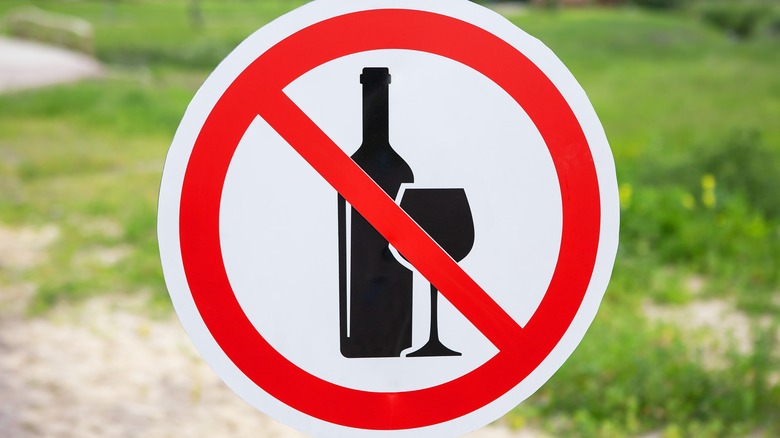The Reasoning Behind Canada's New, Strict Alcohol Guidelines
All over the world, people have locked up their liquor cabinets and opted to sip non-alcoholic aperitifs for Dry January, a month-long event that encourages adults to reevaluate their relationship with drinking. The concept was trademarked by the Great Britain advocacy organization Alcohol Change in 2014, per The Brew Hut, and has grown in popularity since. Still, while the hashtag #DryJanuary currently enjoys thousands of tags on Instagram and TikTok, recent data from Morning Consult shows the initiative isn't as popular as it once was.
That's not to say that drinking is all the rage in 2023. Trend forecasters (including those at Yelp and, oddly enough, Wine Enthusiast) are convinced that non-alcoholic drinks will continue to reign supreme this year. In Canada, health officials are taking a stern approach to encourage its denizens to drink as little as possible. Not just for one month out of the year, but for good.
Canada says 2 drinks a week is plenty
This week, a report from the Canadian Centre on Substance Use and Addiction (funded by the Canadian government's national department, Health Canada) issued a significant warning to citizens who drink alcohol. According to the BBC, the country now discourages citizens from imbibing more than two alcoholic beverages per week, regardless of age or gender. That's a big drop from the previous guidelines published in 2011, which recommended no more than 10 drinks per week for women and 15 drinks for men. If it were up to Canada, no one would be drinking at all.
"The main message from this new guidance is that any amount of alcohol is not good for your health," Public Health Ontario senior scientist Erin Hobin, who helped determine the guidelines, told BBC. "And if you drink, less is better." The decision comes on the heels of record-high deaths related to alcohol.
According to new Statistics Canada data, there were more alcohol-related deaths in Canada between 2019 to 2020 than there had been in the past 20 years. That number increased again in 2021 when 3,875 Canadians died from alcohol abuse. "I [...] think [the deaths speak] to the fact that people are unaware of the significant harms that can result from their alcohol use," St. Francis Xavier University psychology professor Kara Thompson told CBC. The new guidelines are intended to change that.

